Easily grown in moist, humusy soils in full sun to part shade. Grows very well in wet soils, including flood conditions and shallow standing water. Adapts to a wide range of soils except dry ones. Pruning is usually not necessary, but may be done in early spring to shape. If plants become unmanageable, however, they may be cut back near to the ground in early spring to revitalize.
Buttonbush, scientifically known as Cephalanthus Occidentalis, is a versatile and beautiful native shrub that can be a great addition to your garden. With its unique spherical flowers and attractive foliage, it’s a popular choice among gardeners and landscapers.
Typical Uses
Buttonbush can serve multiple purposes in your landscape. Its most common uses include:
- Ornamental Beauty: Buttonbush’s striking globular flowers attract pollinators like butterflies and bees, making it a fantastic addition to butterfly gardens and wildlife habitats.
- Wetland Planting: This shrub thrives in wet or waterlogged soil conditions, making it an excellent choice for rain gardens and areas with poor drainage
- Erosion Control: Buttonbush’s deep-rooted system helps stabilize soil and prevent erosion, making it a valuable addition to waterfront properties.
Establishment and Care Instructions
Buttonbush is relatively easy to establish and maintain. Follow these care instructions:
-
-
- Planting: Choose a location with full to partial sun and well-draining soil. Dig a hole as deep as the root ball and twice as wide. Place the shrub in the hole and fill it with soil, then water thoroughly.
- Watering: Keep the soil consistently moist, especially during the first year. Buttonbush thrives in wetter conditions, so ensure it doesn’t dry out.
- Pruning: Prune to shape the shrub in late winter or early spring, removing any dead or damaged branches. This helps maintain a tidy appearance and encourages new growth.
- Fertilization: In most cases, buttonbush doesn’t require additional fertilization. However, you can apply a balanced, slow-release fertilizer if the plant shows signs of nutrient deficiency.
-
Special Features and Usage
Buttonbush has some unique features that set it apart:
-
-
-
- Spherical Flowers: The distinctive spherical clusters of small white flowers make buttonbush a focal point in any landscape.
- Wildlife Attraction: Bees, butterflies, and other pollinators are drawn to the nectar-rich flowers, making it a great choice for pollinator gardens.
- Water Tolerance: Buttonbush can thrive in wet and waterlogged soil conditions, making it perfect for water gardens and areas with poor drainage.
-
-
Buttonbush (Cephalanthus Occidentalis) is an excellent choice for gardeners looking to add beauty, wildlife habitat, and erosion control to their landscape. With its unique appearance and adaptability to wet conditions, it’s a must-have plant for various outdoor settings.

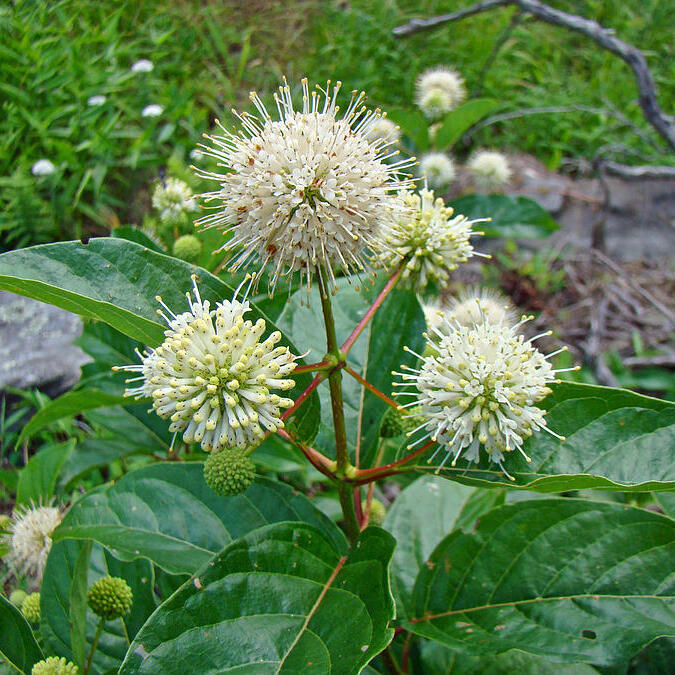


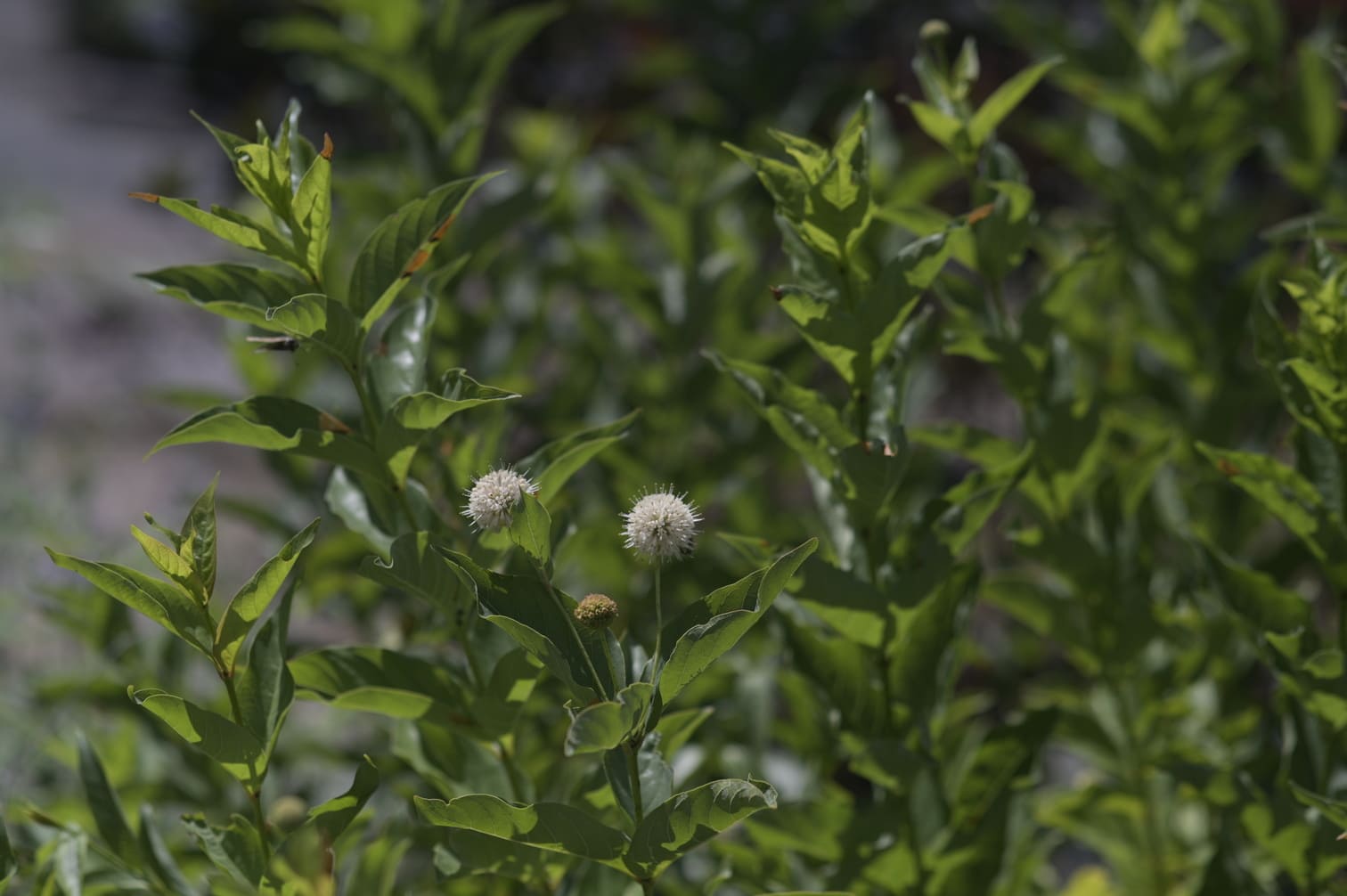
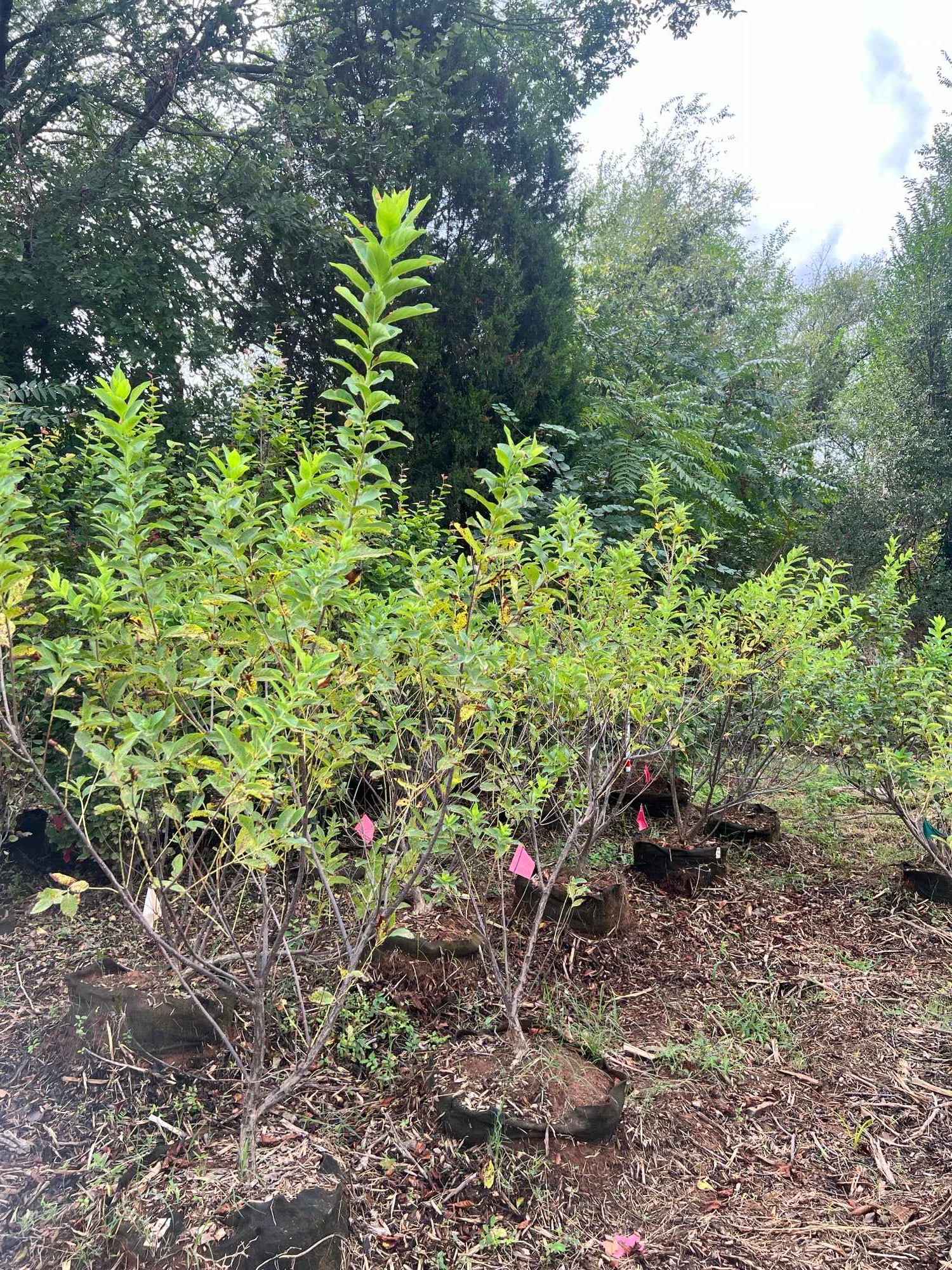
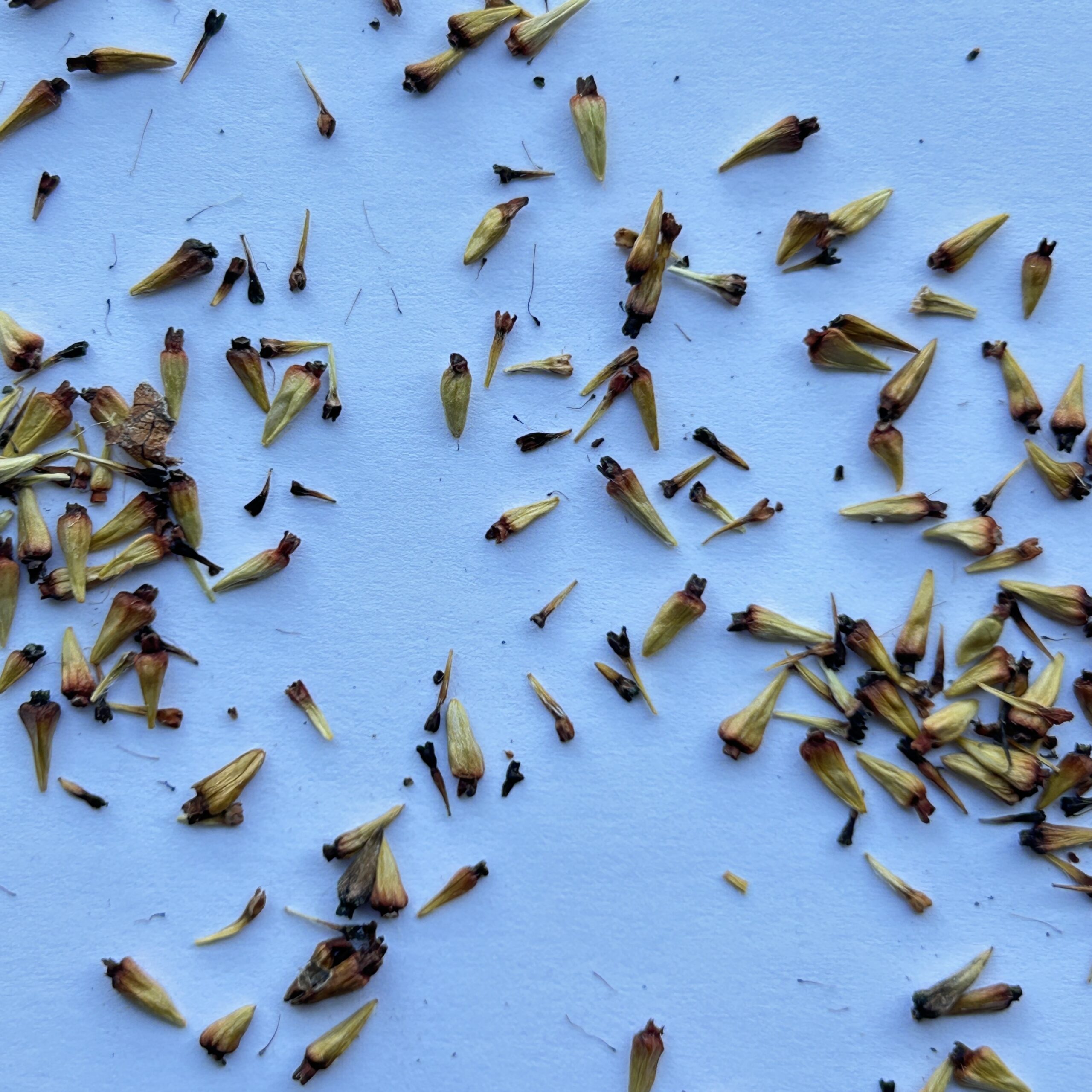
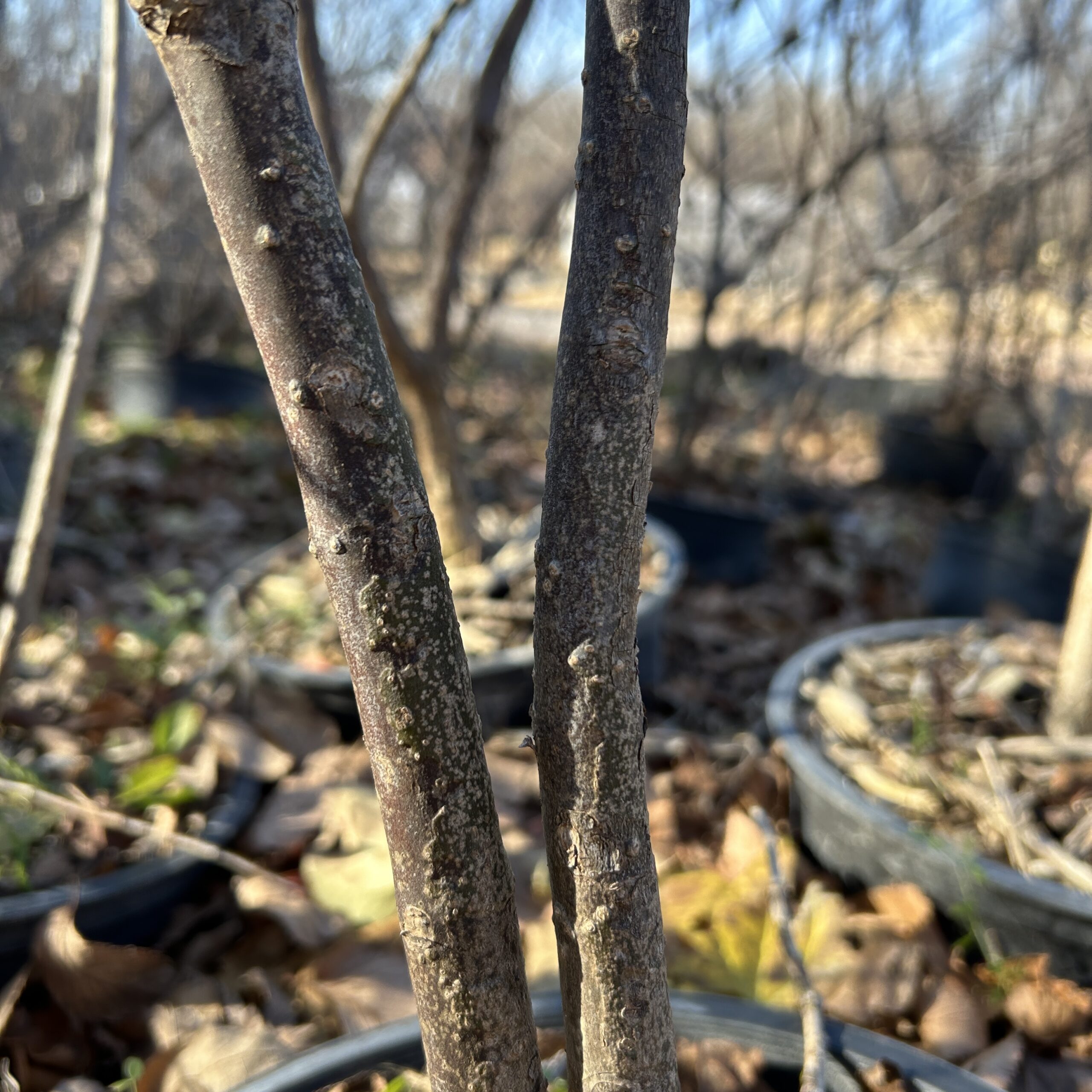

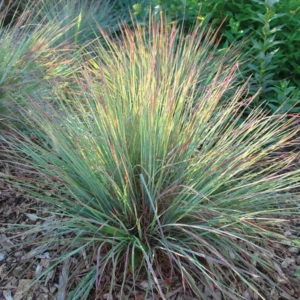
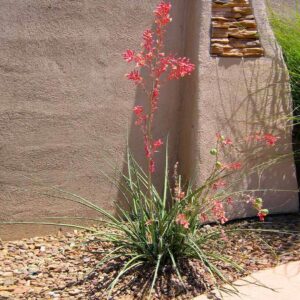
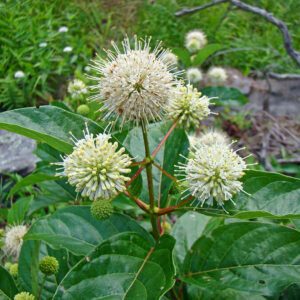
Reviews
There are no reviews yet.